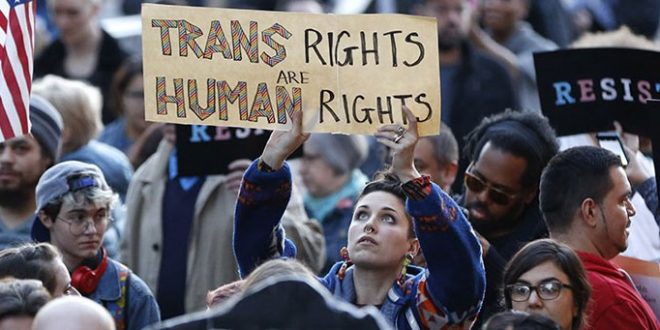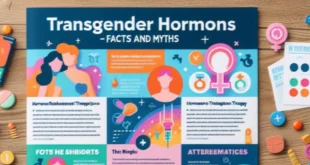Acquired gender: The gender role that a trans person achieves through the process of transition. It is the legal term in relation to the issuing of a Gender Recognition Certificate (GRC) which gives a trans person full legal rights in this gender.
Androgyn: A person who does not fit cleanly into the typical masculine and feminine gender roles of their society.
Attributed gender: The gender and sex that one is taken to be by others. This is usually an immediate, unconscious categorisation of a person as being a man or a woman, irrespective of their mode of dress.
Bisexual (Bi): Person capable of sexual and/or romantic attachment to person of either gender.
Charing Cross Hospital (CHX): Principal centre in UK for treating Gender Identity Disorder/Transsexuality.
Cisgendered: Person whose gender-presentation matches their birth gender i.e. typical man or woman.
Civil Partnership (CP): Marriage of same sex couples, legal in the UK, those that have transitioned and still with their partner have to annul their marriage and then have a Civil partnership.
Crossdresser (CD): Person who wears the clothing of the opposite gender on a part-time or full time basis.
Drab: Dressed As a Boy Wearing male clothing.
Drag: Wearing clothing of opposite gender (usually in theatrical context).
Drag King: Male impersonator Cross dressed female (usually in theatrical context).
Drag Queen: Female Impersonator Cross dressed male (usually in theatrical context).
En femme: From French term, meaning “in female mode”.
F2M: Female to male transgendered person aka FTM.
Facial Feminisation Surgery (FFS): Facial surgery to alter a MTF transsexual’s face to make it look more feminine.
FTM: Female-to-Male transgendered person, aka ‘F2M’.
Gender Dysphoria (GD): Psychological term for unhappiness with ones gender.
Genetic Girl (GG): Genetically female woman, natal female. aka ‘RG’.
Gender Identity Disorder (GID): Official medical diagnosis of transsexuality, usually prior to ‘transitioning’.
Gender Recognition Act (GRA): Act of the Parliament of the United Kingdom that allows transsexual people to change their legal gender. It came into effect on April 4, 2005.
Gender Recognition Certificate (GRC): Legal document to change sex on birth certificate.
Gender Reassignment Surgery (GRS): Surgery to change physical sex i.e. ‘sex change”. aka ‘SRS’.
Genderqueer (GQ): Person with a non-binary gender identity i.e. not male or female.
Genetic Girl (GG): Genetic female/natal woman. Please note: term may be offensive to MTF TSs as it implies that they are not genuine in terms of being considered real. aka ‘RG’.
Intersex (IS): General term used for a variety of conditions in which a person is born with a reproductive or sexual anatomy that doesn’t seem to fit the typical definitions of female or male.
In role: Term used for TS’s, for MTF living as a woman or FTM living as a man, prior to transitioning treatment.
LGBTI: Lesbian, Gay, Bisexual, Transgender and Intersex Overall term for non-heterosexual, gender-typical community.
M2F: Male to Female Transgendered person. aka ‘MTF’.
Metropolitan Community Churches (MCC): LGBT accepting denomination of churches.
MTF: Male to Female Transsexual aka. ‘M2F’.
Non-op TS: Non-operation transsexual TS who has transitioned socially to their new gender, but cannot have GRS (possibly due to medical reasons) or does not want GRS.
Passing : Perceived to be the gender you are presenting, rather than your birth gender.
Post-op TS: Post-operative transsexual – A transsexual person who has had Gender Reassignment Surgery.
Pre-op TS: Pre-operative transsexual – A transsexual person who has not yet had Gender Reassignment Surgery (may not be intending to do so due to factors such as health).
Purge: Term often used in TG community for transgendered people getting rid of their preferred gender role clothing & accessories.
Queer: Person with atypical gender/sexual identity.
Real Girls (RG): Genetic female/natal woman. Please note: term may be offensive to MTF TSs as it implies that they are not genuine in terms of being considered real.. aka ‘GG’.
Real Life Experience (RLE): Period in which a TS lives ‘in role’, prior to undergoing surgery. Is also known as ‘RLT’.
Real Life Test (RLT): Period in which a TS lives ‘in role’, prior to undergoing surgery. Is also known as ‘RLE’.
Sex Reassignment Surgery (SRS): Surgery to change physical sex i.e. ‘sex change”. aka ‘GRS’.
SOFFA: Significant Other, Friend, Family, or Ally of a transsexual, transgender, intersex or other gender-variant person.
Testosterone (T): Male hormone for Female to Male Transsexual. Is also the hormone that is reduced as part of transitioning for MTF Transsexuals.
T*: Transgender Often used to avoid confusion with ‘T’, which is used for testosterone in FTM community.
T*Girl: Transgender girl Transvestite or MTF Transgendered person, aka ‘TGirl’.
Transgender (TG): Transgender issue, also, to be transgendered.
TGirl: Transgender girl, Transvestite or MTF Transgendered person, aka ‘T*Girl’
TS: Transsexual Person with Gender Identity Disorder.
Trans: Term used to abbreviate transgendered, the umbrella term for trans people.
Transition : Medical/social process in which a TS changes to their new gender.
Trans man: Female-to-male TS living in male role.
Transvestite (TV): Person who wears the clothing of the opposite gender on a part-time or full time basis.
Trans Woman: Male-to-female TS living in female role.
 Lesbian, Gay, Bisexual, Transgender & Intersex News Lesbian News, Gay News, Bisexual News, Transgender News, Intersex News, LGBTI News
Lesbian, Gay, Bisexual, Transgender & Intersex News Lesbian News, Gay News, Bisexual News, Transgender News, Intersex News, LGBTI News




